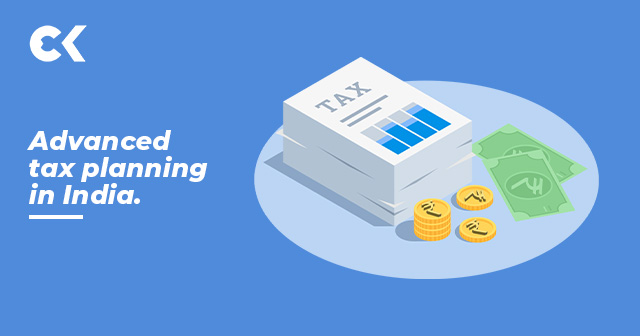Advanced Tax Planning

Posted by Creditkaro
Advanced tax planning in India
Tax Planning:
Planning of tax is a valid method of reducing tax liabilities
in a year. It always helps the taxpayers to utilize tax exemptions, deductions,
and other benefits in the best possible ways of minimizing taxpayers' tax
obligations. However, it should be done in legal ways. Actually, tax planning
is an analysis of taxpayers' financial situation from the tax efficiency point
of view to plan taxpayers' finances in optimized methods. Tax planning allows
taxpayers to make the best use of tax exemptions, deductions, and benefits to
minimize their tax liabilities over a financial year. Tax planning is the legal
way of lessening income tax liabilities. Incidentally, the taxpayers have to be
cautious while ensuring that the respective taxpayers are not intentionally
indulging in tax evasion or tax avoidance.
Advance Tax
What is the definition of advance
tax? As the name proposes, advance tax refers to paying a part of taxes before
the end of the financial year. It is also called the 'pay-as-you-earn' scheme.
Advance tax is the income tax payable if the tax liability is more than Rs 10,000 in
a financial year. It should be paid in the year in which the income is
received. Paying tax in advance has got advantages also. By paying tax in
advance the payers are not only helping the government but also helping
themselves by not finding it hard to pay the whole tax in one go in the
end. This way, if advance tax liability for the financial year 2017-18 has
exceeded Rs 10,000, you are expected to pay it in the same financial year.
The deadlines are at least 15% of the liability on or
before 15th June, 45% by 15th September, not less than 75%
by 15th December, and the whole amount of the tax calculated, by 15th
March of each financial year. If the estimate of one’s income changes as the
installments progress, the advance tax payable can be increased or reduced
accordingly. Any amount paid up to 31st March will also be accepted
as advance tax for that financial year.
Tax Planning in India
There is a number of tax-saving options for the taxpayers in
India. These options allow the taxpayers to go through a wide range of tax
exemptions and deductions that help them to limit their overall tax
liabilities. There are various other sections under the Income Tax Act 1961
that can be helpful in minimizing the overall tax liabilities. The deductions
are available from sections 80C through to 80U and can be claimed by eligible
taxpayers. These deductions are made against the major portion of the tax
liabilities. Under the same act, several other sections can decrease taxpayers'
tax liabilities such as exemptions and tax credits. It becomes a completely
legal decision when the taxpayers make the tax planning within the frame defined
by respective authorities. However, using shady techniques to avoid tax
payments is illegal and the people who tend to do this practice can be in great
trouble for doing so. Tax savings practices include tax avoidance, tax evasion,
and tax planning. Amidst that, tax planning is the only legal and valid process
to lessen tax liabilities. The government offers several opportunities to save
on taxes with the intention of decreasing tax liabilities on the taxpayers
through legal income tax planning methods.
Corporate Tax Planning
Corporate tax planning is a method that decreases the tax
liabilities of registered companies. The common methods to lessen tax
liabilities are taking deductions on business transport, health insurance of
employees, office expenses, retirement planning, child care, charitable contributions,
etc. Through the various tax deductions and exemptions, provided by the income
tax act any company can significantly reduce their tax burdens legally. Once
again, it is to be noted that tax planning should not be confused with tax
avoidance and all planning should be made within the framework of the law.
Increasing profits for a company results in higher tax liabilities. It becomes authoritative for the company to dedicate enough time to the planning of taxes to reduce liabilities. With proper planning of tax, direct and indirect tax liabilities can be reduced at times of inflation. It also can assist in the proper planning of expenses, capital budget, and sales and marketing costs among others. Good tax planning results mean disclosing correct information to relevant IT departments, no ignorance of applicable tax laws as well as court judgments regarding the same, planning of tax properly and under the purview of law, and planning must have to be done with business objectives in mind and should be flexible enough to integrate possible changes in the future.
Types of Tax Planning
Generally, there are three major types of tax planning. One
is purposive tax planning. The second one is permissive tax planning and the
third one is long and short-range tax planning. Purposive tax planning is
planning with particular objectives in mind. Permissive tax planning is
planning under the framework of law and long &short range tax planning is
planning made at the start and the end of the fiscal year respectively.
Tax Saving
Objectives:
The taxpayers should keep in mind about the primary objectives before
making plans to pay taxes. The objectives are like this: There should be a reduction
in overall tax liability. There should be economic stability and growth in the economy,
the taxpayers should not face litigation minimization and above all the
investments should be productive.
Category
Recent Post
Archive